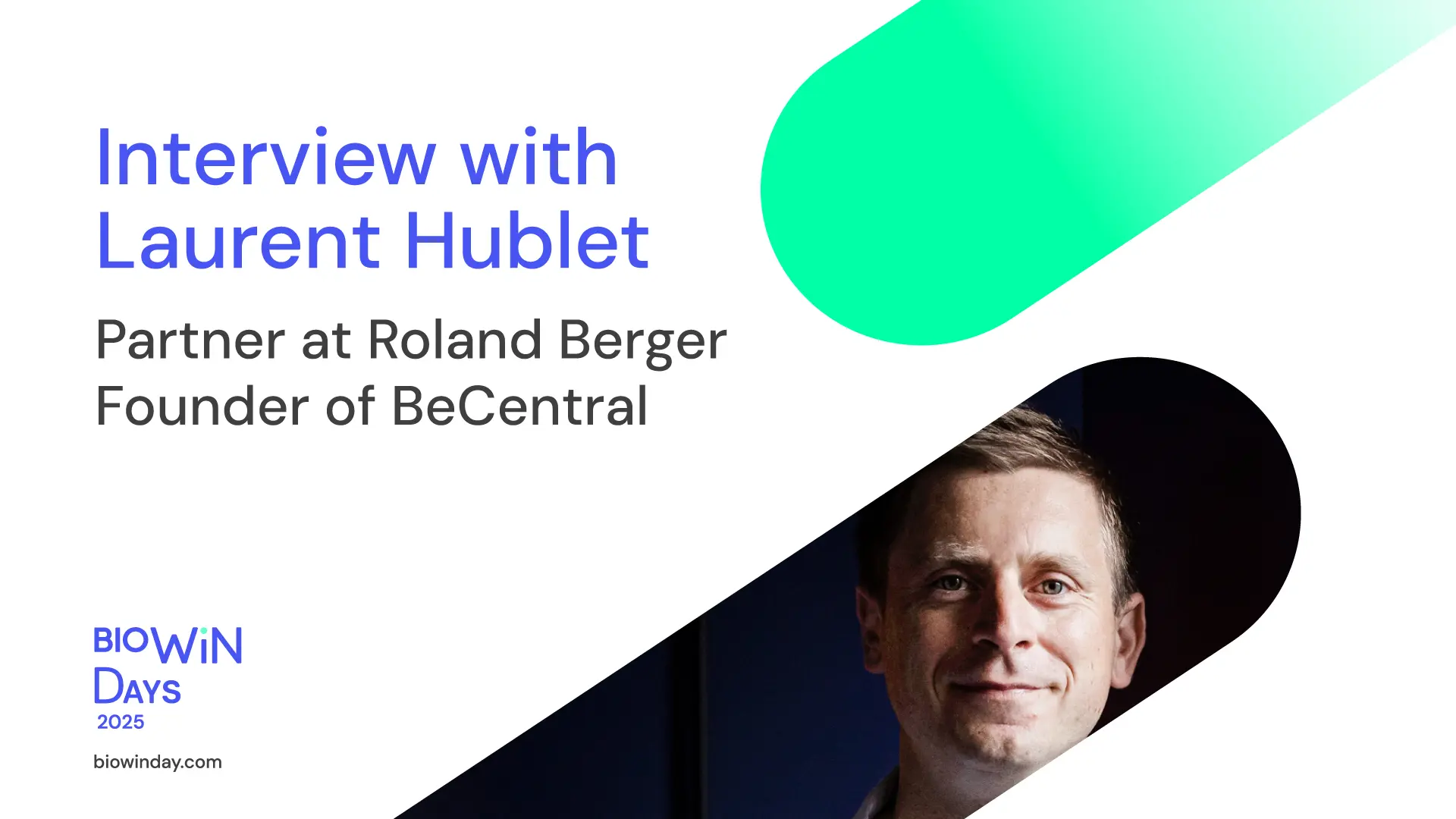BioWin is pleased to welcome Laurent Hublet as a keynote speaker at BioWin Days 2025. His talk, “The Purpose of Innovation”, will explore a fundamental yet often overlooked question: what is the purpose of innovation, and how can we align it with the needs of society, healthcare and the life sciences ecosystem? Innovation is everywhere, but does it always have a clear purpose?

Laurent Hublet is the co-founder of BeCentral, Belgium’s digital campus, and a thought leader at the crossroads of innovation, policy, and education. With a background spanning public service, academia, and entrepreneurship, he has dedicated his career to making technology and innovation more meaningful for society. At BioWin Days, he will bring this unique perspective to challenge innovators in healthcare to reflect on the “why” behind their work.
Ahead of BioWin Days, we asked our keynote speaker for a preview of this thought-provoking session.
Q: What does “purpose” really mean in innovation?
Laurent Hublet: We talk so much about innovation that it sometimes feels like a value in itself. But innovation on its own doesn’t automatically mean progress. For me, purpose is when three dimensions align: how we see the world, the meaning we give to it, and the direction we want to go. When those three are in balance, innovation feels meaningful. When they are not, we sense that something is missing.
Q: Do you think health innovation is purposeful today ?
A: We probably all have a different perspective on that question. However, I think our societies are facing a paradox regarding the purpose of health innovation. On the one hand, there has been tremendous progress on multiple dimensions of human health. But on the other hand, the tensions and fears about our future individual and collective health have never been as high as today. Some citizens are deeply questioning the meaning of health innovation.
Q: How does this anxiety materialize today ?
A: It is particularly prevalent in the US, though we shouldn’t underestimate the degradation of the social consensus around healthcare in Europe. Robert F. Kennedy Jr. Is now heading the Department of Health and launching “Make America Healthy Again,” fundamentally questioning public health policy and even scientific expertise.
When global health budgets are cut by the US government, it might feel distant, but the effects reach us here too. For biotech actors in Wallonia, the question becomes: which projects move forward when resources shrink, and who decides? Do we risk losing innovations that matter for patients, because the framework around us changes? Those are very tangible questions that keep purpose from being just a nice word.
Q: How do you think our societies could solve this “purpose paradox” ?
A: It’s a very good question, and a difficult one at the same time. This purpose paradox is a challenge that the whole healthcare industry is facing, and I have no magic wand, unfortunately. But I think we can find inspiration in the great work of Hannah Arendt. She wrote about the purpose of human activities after World War II, a time where some innovations were questioned.
Arendt suggests the level of purpose for all human activities:
- Labour – the basics, like reducing poverty or extending life expectancy.
- Work – building something that lasts, such as solid science or reliable therapies.
- Action – having an impact on society, for example by saving lives or strengthening communities.
The question is: are we balancing all three? Or do we sometimes put too much weight on one and overlook the others?
“Purposeful innovation is not just about results, it’s about balance. Survival, lasting science, and social impact must come together.”
Q: What message do you have for innovators attending BioWin Days?
A: My message is an invitation: let’s not take purpose for granted. Innovation is not automatically meaningful. It depends on how we choose to guide it.
At BioWin Days, I hope to open a conversation. How do we, as an ecosystem, ensure that our innovations serve not only progress, but also people? How do we keep trust while pushing the boundaries of science? And how do we define success, is it survival, excellence, or impact, or is it all three together?
“Innovation is not automatically good. The real question is: why do we innovate, and what kind of future do we want to create?”
Join me at BioWin Days 2025 in Namur for The Purpose of Innovation. Together, we’ll reflect on what innovation really means for life sciences, and why asking the right questions is more important than ever.
